‘Have something to look forward to’: Sydney line reveals what Gen Zers will line up for in 2025
A line in Sydney’s trendy Surry Hills has revealed what Gen Zers see as a novelty in 2025 – if you’re older than 30, brace yourself.
A line in Sydney’s Surry Hills has revealed the thing Gen Zers are willing to stand around for, mostly because it has become a novelty.
You’ll need to brace yourself here, but heading into a store, which Boomers, Gen Xers, and Millennials do whenever they want to buy something, is far more of a novel idea for Generation Z.
Australia spent over $69 billion last year on online shopping and, according to financial comparison website Finder, Gen Zers spend more online than any other generation.
The surge of online shopping has long made consumers wonder if brick-and-mortar stores will become irrelevant, but it doesn’t seem so. Gen Z is prepared to shop in-store, but it needs to feel more like an event.
So much so, that on one rainy weekend in Sydney, young women flocked into the city to have an in-store experience with the online Melbourne brand Katharina Lou.
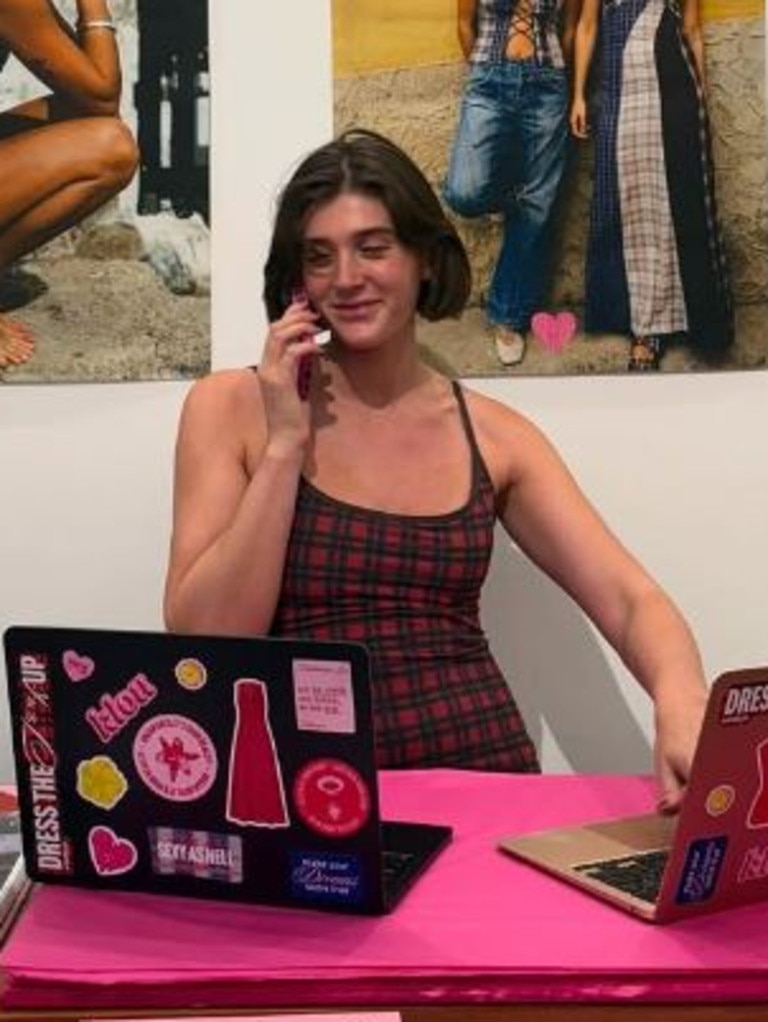
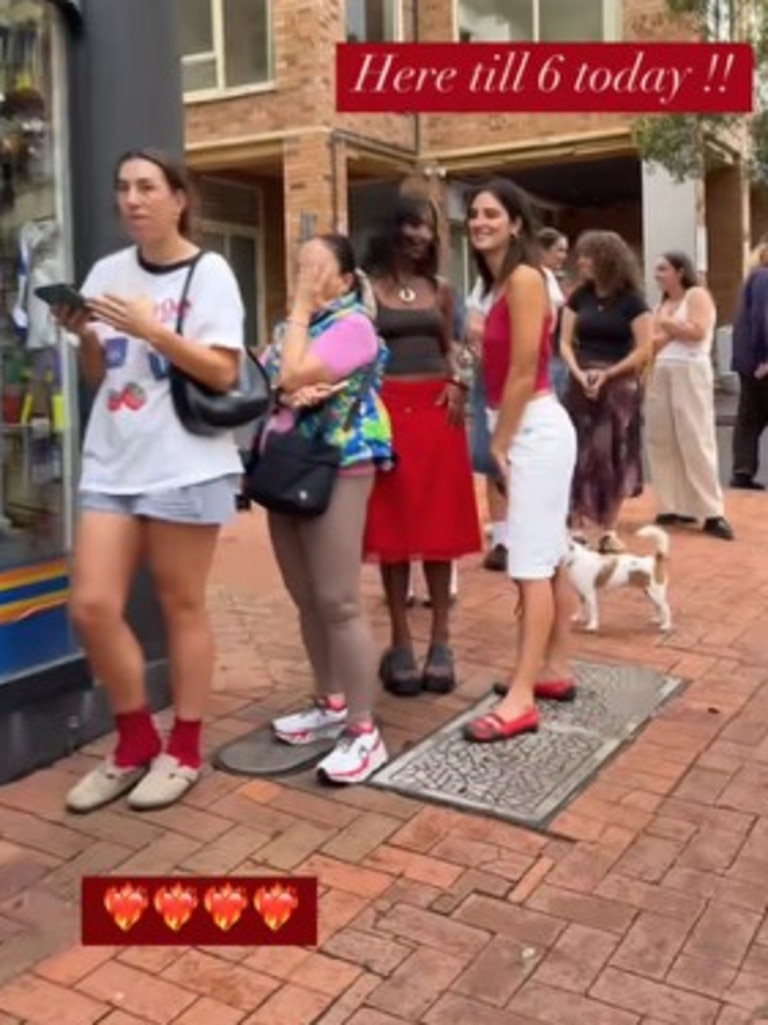
A line in one of Sydney’s most trendy suburbs was formed as they waited around to buy clothes. The selling point is that they could try them on.
Millennials and Boomers, of course, used to call this “hanging out at the shops”, but whatever works.
Katharina Mildren, 26, started her clothing brand, Katharine Lou, during the pandemic. She was working in retail at the time and, once her job was seen as non-essential, she had enough time on her hands to start her clothing line.
Ms Mildren sells her designs online, it is a slow-fashion brand that encourages customers to “dress the f**k up” and invest in quality wardrobe pieces.
She’s amassed over 36,000 followers on Instagram and the slow-fashion brand has found a really loyal customer base.
Ms Mildren has become an expert in engaging with Gen Zers and she’s found that pop-up events are crucial.
“Pop ups have been such an integral part of my brand from the beginning. I hosted my first one back in 2022 as soon as we were allowed to host events after Covid,” she told news.com.au.
“This was the first time I was able to connect in person with my customers and see the community I built online in real life.
“It was a huge confidence boost as it made everything I’d been working on feel tangible.”
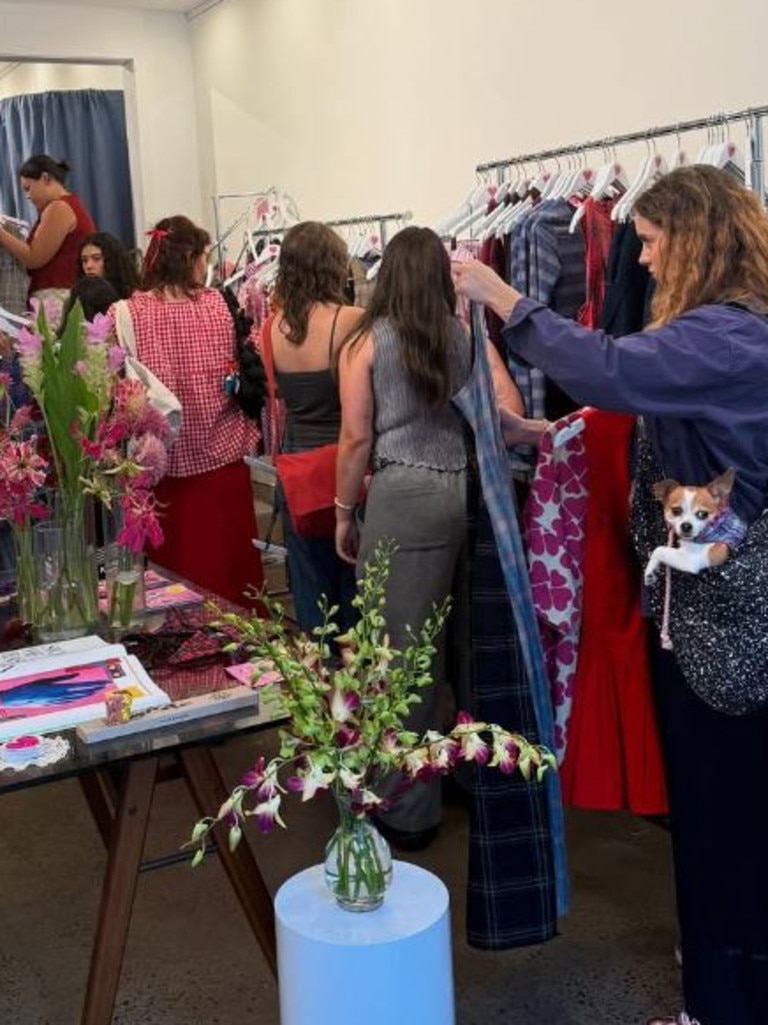
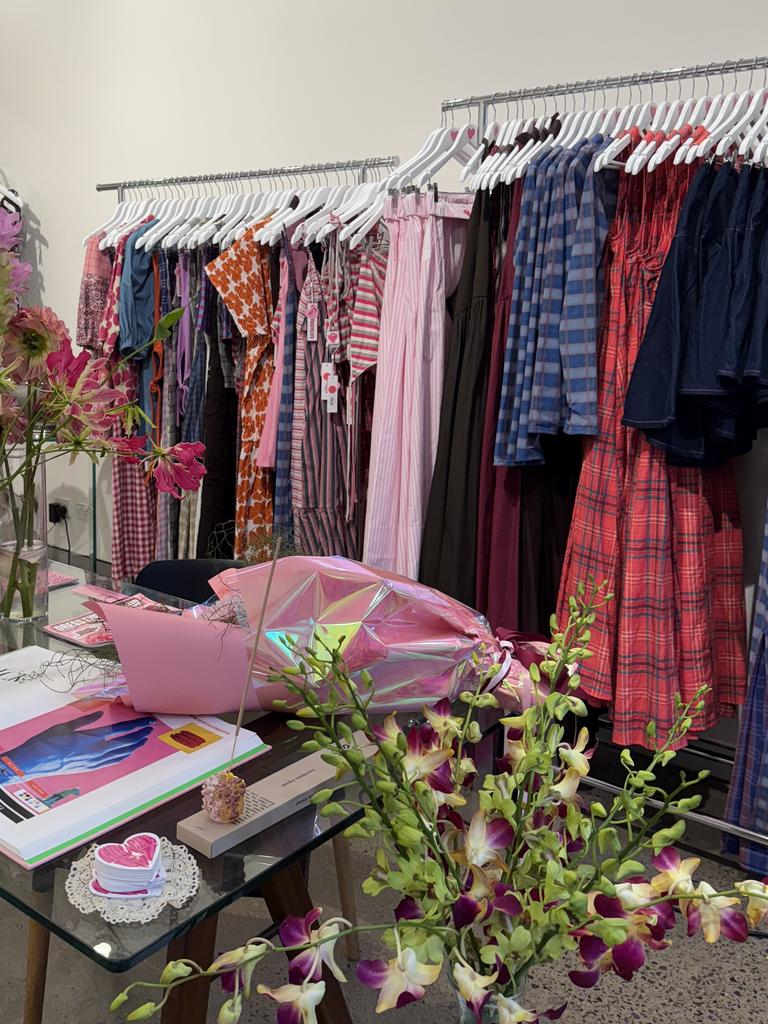
The 26-year-old said that Gen Zers “absolutely” still want to shop in-store because the digital natives value in-person experiences.
“The turn out to our events are proof of this, and you can see a lot of Australian small brands doing the same,” she said.
“Gen Z loves a beautiful space, an excuse to dress up, post on social media and have something to look forward to over a weekend.”
In Ms Mildren’s case, she sells fitted dresses, and many customers would prefer to try them on in person to ensure they get the right size and style for them.
Her most recent pop-up in Sydney was a staggering success, with an unbelievable turnout.
“It was incredible. Our pop-up events are always a huge hit with lines out the door for almost the whole time, something I can’t quite believe,” she said.
“Having so many supporters of the brand is surreal, and something I will never get over.”
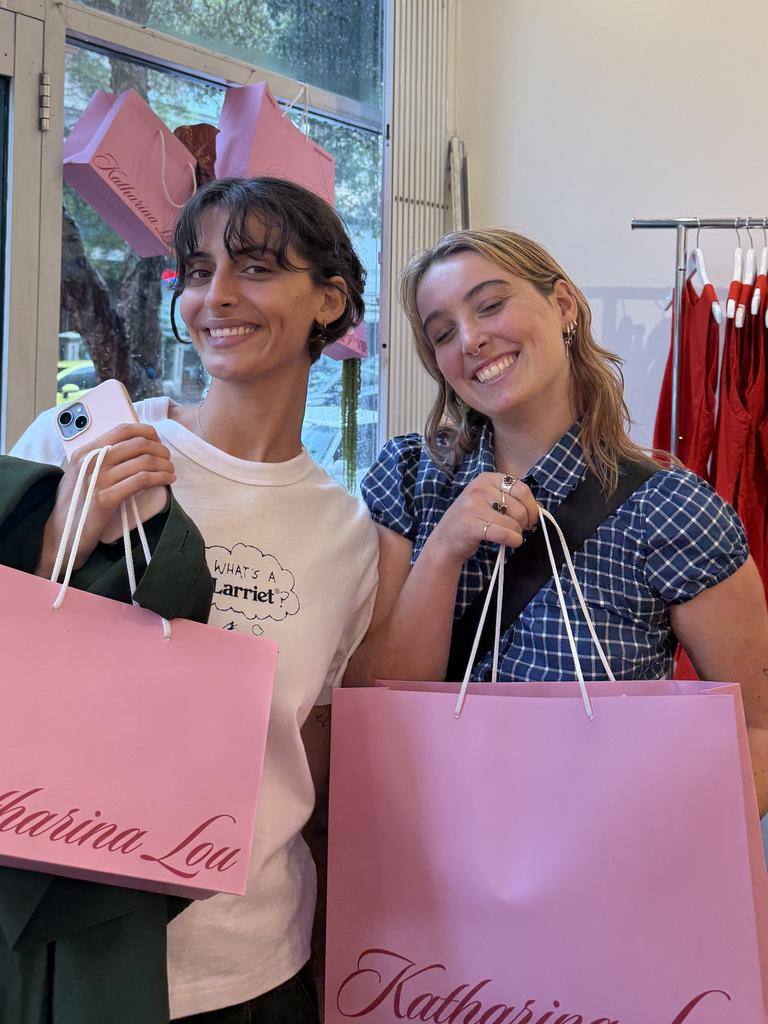
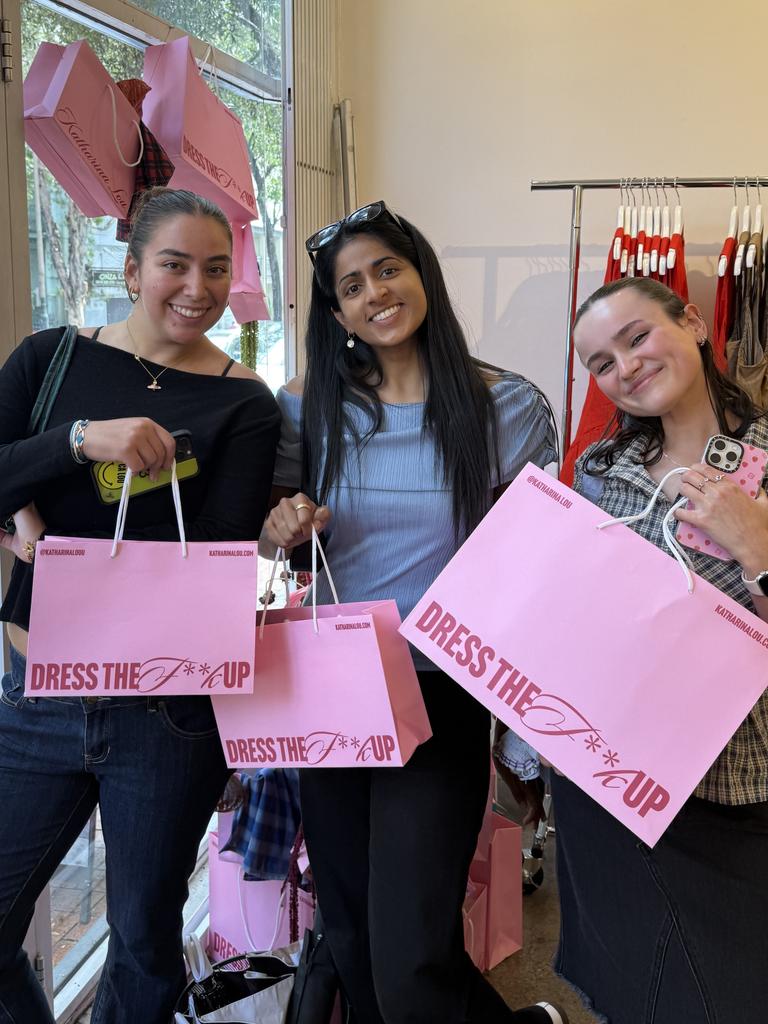
The 26-year-old designer said it is also a chance for her to garner inspiration from customers and discuss what kind of clothing they want.
Ms Mildren said that, despite the success of in-store events, social media is still her biggest tool for connecting.
“Being able to access our customer base and grow it so directly has been integral to the growth of the brand,” she said.
“It has also taught me to lean into what makes me and my brand special and not try and look at what everyone else is doing.”
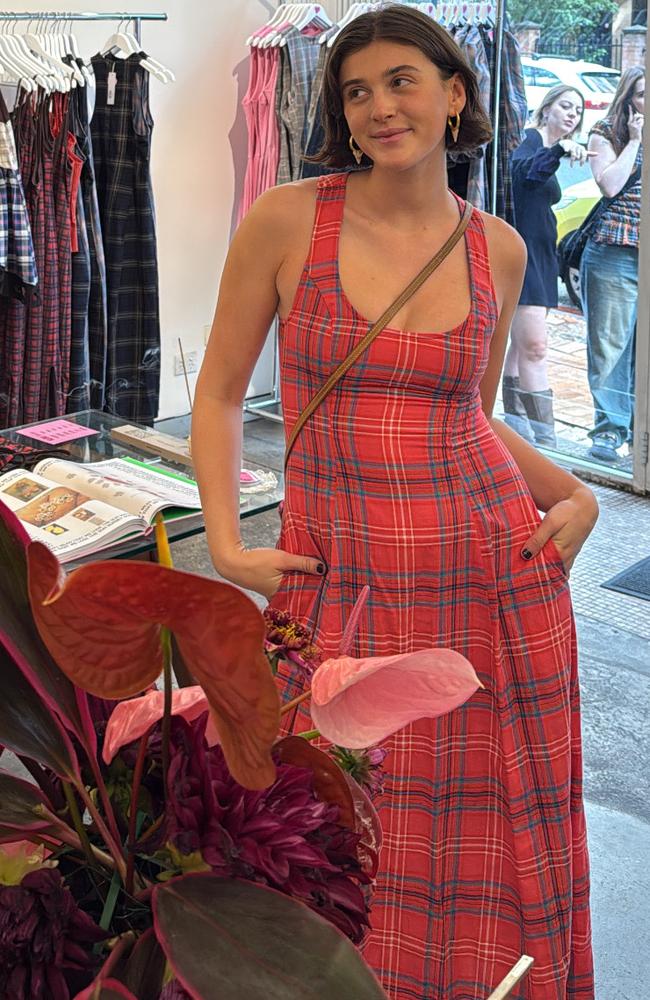
The designer has learned the key is to stay consistent and authentic online and not get “derailed” by following the actions of others.
As for the slow fashion aspect of her business, she’s found that the response from young people is a “mixed bag”.
Lots of Gen Zers want to support slow fashion, but there’s a cost-of-living crisis and a billion-dollar fast-fashion industry to compete with.
“It is a very layered and complicated issue,” she said.
However, what makes Ms Mildren feel optimistic is how her brand has been embraced by customers who are “supportive” and really care about slow and ethical fashion.
“It gives me hope for a more sustainable fashion future,” she said.






